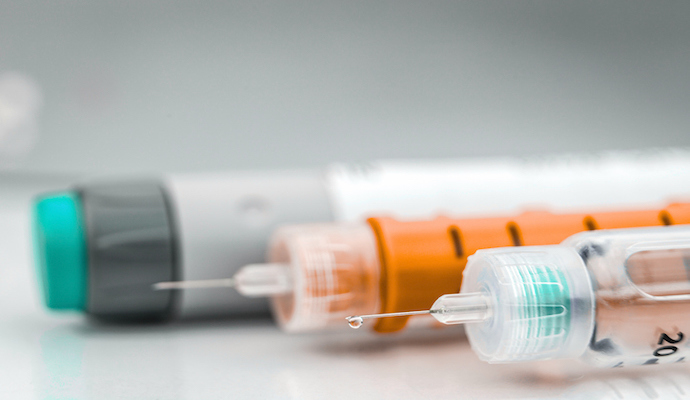Pfizer, BioNTech Dose First Participants in COVID-19 Vaccine Trial
The COVID-19 vaccine trial is part of a global development program that will uncover the safety and immunogenicity of four mRNA vaccine candidates.

Source: Thinkstock
- Pfizer and BioNtech recently announced that the first participants have been dosed in a Phase 1/2 clinical trial for the BNT162 vaccine program to prevent COVID-19.
For more coronavirus updates, visit our resource page, updated twice daily by Xtelligent Healthcare Media.
The Phase 1/2 study will enroll nearly 360 individuals into two age cohorts, 18 to 55 and 65 to 85 years of age, to uncover the safety, immunogenicity, and necessary dose level of four mRNA vaccine candidates
Older adults will only be immunized with a certain dosage once testing of the specific candidate and dose level in younger adults show safety and immunity.
The announcement comes shortly after the pharmaceutical companies signed a letter of intent to co-develop and distribute potential coronavirus vaccines. The collaboration aimed to accelerate the development of BioNTech’s vaccine program, BNT162, which entered clinical testing at the end of March.
The partnership builds on the collaboration that the companies entered in 2018, leveraging Pfizer’s expertise in vaccine research and development, regulatory capabilities, and global manufacturing and distribution network
And at the end of April, Pfizer and BioNtech disclosed additional details on their vaccine development plans. Under the new terms of agreement, Pfizer paid BioNTech $185 million in upfront payments, including a cash payment of $72 million and an equity investment of $113 million.
Pfizer agreed to fund 100 percent of the development costs and BioNTech will repay Pfizer its 50 percent share of these costs during the commercialization of the vaccine.
The most recent announcement noted that NYU Grossman School of Medicine and the University of Maryland School of Medicine, with the University of Rochester Medical Center/Rochester Regional Health and Cincinnati Children’s Hospital Medical Center, will begin enrollment for the Phase 1/2 clinical trial within the next few weeks.
“With our unique and robust clinical study program underway, starting in Europe and now the U.S., we look forward to advancing quickly and collaboratively with our partners at BioNTech and regulatory authorities to bring a safe and efficacious vaccine to the patients who need it most,” Albert Bourla, chairman and CEO, Pfizer, said in the announcement.
“The short, less than four-month timeframe in which we’ve been able to move from pre-clinical studies to human testing is extraordinary and further demonstrates our commitment to dedicating our best-in-class resources, from the lab to manufacturing and beyond, in the battle against COVID-19.”
The four vaccine candidates represent a different combination of mRNA format and target antigen. The trial design ensures the evaluation of candidates concurrently to find the safest and efficacious candidate in a way that will enable data sharing with regulatory authorities in real-time, Pfizer noted.
“It is encouraging that we have been able to leverage more than a decade of experience in developing our mRNA platforms to initiate a global clinical trial in multiple regions for our vaccine program in such a short period. We are optimistic that advancing multiple vaccine candidates into human trials will allow us to identify the safest, most effective vaccination options against COVID-19,” said Ugur Sahin, CEO and co-founder of BioNTech.
Pfizer-owned sites across the US, Puurs, and Belgium have manufacturing centers for vaccine production, while BioNTech plans to increase its production capacity to provide further capacities for a global supply of the potential vaccine through its existing mRNA production sites in Germany.
The pharmaceutical companies stated that they will continue to work jointly to commercialize the vaccine worldwide upon regulatory approval.
